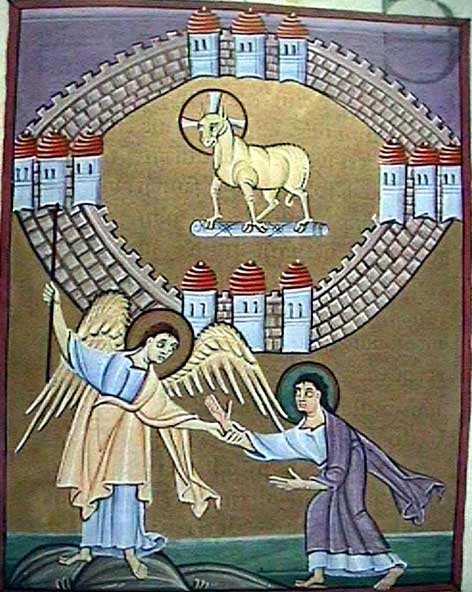
Transfiguration Sunday
Last Sunday of Epiphany
Methodist Home for Children Sunday
Luke 9:28-36
Genesis 1:1-5
If you have ever overbooked yourself, spread yourself too thin, tried to be in more than one place at once, then you can sympathize with the church this Sunday. If you have ever looked at your calendar only to have your stomach sink as you realize that you are going to have to disappoint someone with whom you have made plans, tell someone that you simply can’t make it, scramble to re-shift your plans, then you know the predicament in which the church finds itself today. The church, this Sunday, has done just that. If you look at the church calendar today, there are three major appointments that we have made. It seems that we have overbooked ourselves.
To start, today is the last Sunday of Epiphany. This day, we are to take our final glimpse of the surprising God who shows up in the most unexpected places, like in a manger, surrounded by an unwed teenage mother, donkeys and Gentile wise men. Secondly, today is also Transfiguration Sunday, the day that we are supposed to read about Jesus going up top of the mountain with his three favorite disciples. You know the story, while on the mountain, Jesus’ face is suddenly changed to glowing, and there with him are Elijah and Moses, and a voice from the clouds saying, “This is my son, the chosen one, listen to him.” Finally, on our calendar we see that within the life of our conference, it is Methodist Home for Children Sunday. Today, we are supposed to focus on the work of God in that place, with those children and those families. It seems that we have overbooked ourselves.
Ultimately, the last appointment on our calendar today is what brings me into your midst today. I am here on behalf of Methodist Home for Children. But I’m not ready to throw aside our former appointments just yet.
In our Gospel reading today, we hear the story of the Transfiguration. We, along with churches around the world are listening to this story today. This odd story of Jesus trekking up the side of a mountain to pray with his closest friends. Suddenly, while on the mountainside, he changed. There’s really no other way to explain it. He just changed. Luke says that suddenly, his face changed, and his clothes, too. They were white, dazzling, brilliant. Then, out of nowhere, Elijah and Moses are standing there, chatting with Jesus about what is about to happen to him. Moses and Elijah, the writer of the Law and the chief prophet, dead for generations are standing there conversing with Jesus. Finally, just when the story seems to have reached its apex in mystery, a voice from the clouds…God’s voice from the clouds, booms forth, “This is my son, listen to him.”
With all of this wonder and splendor, with the gathering of Jesus and Elijah and Moses, with Jesus aglow with light, it is easy to be temporarily blinded by the majesty of it all and forget to ask the question that this story begs. What in the world is God doing showing up there?! On a mountain…and not in the temple? With Jesus, a renegade rabbi, instead of with the trained religious leaders? With fishermen, and not religious people? What kind of a God hangs out in barren mountains with poor fishermen and a wanna-be teacher?
Apparently, the God of Jesus Christ. The most telling aspect of the story of the transfiguration is the location and the company therein. The God revealed in Jesus Christ lives in barren places, and with broken people. The God of the Transfiguration shines forth when hurting, and pain and hopelessness are most prevalent. As Jesus stands atop that barren hill and contemplates his hellacious death, God shows up. Or maybe God doesn’t so much show up as Jesus and the Disciples enter the place where God lives. As the rag-tag group of fishermen stood on the barren hill, bracing themselves for suffering unimaginable, suddenly they were standing in the very presence of God. As they followed Christ up the desolate mountainside of despair, they followed Christ into the place where God lives. God lives in places such as this.
We first catch a glimpse of this God making his home in the midst of despair in the opening verses of Genesis. In the beginning, God looked down on the world and saw that there was nothing…a giant void…poverty personified. Our Bibles read that there was “an empty, formless, dark void.” The Hebrew is “tohu-wa-bohu. You don’t have to know Hebrew to know that it is bad. God, standing far off, looking down on the empty, impoverished world, decides to make a home there. God meets the poverty of nothing by creating the most wonderful things…trees, aardvarks and pterodactyls. God keeps creating, meeting the poverty God sees. Soon, God sees that there is a poverty of relationship, so God creates humans to love God and one another and makes a home for Godself there, among the humans. God seems infatuated with burrowing down and making a home for Godself wherever there is poverty.
The rest of the Bible, we see God running around meeting poverty. Poverty of covenant by creating Israel, poverty of hope by raising up the prophets, poverty of our mortality by creating the Incarnation and the resurrection. Throughout scripture, we find out time and time again that when you stumble across poverty of any sort, you are knocking on the door of where God lives.
And it’s always in the most unexpected places, like in a dusty stable, or a desolate mountaintop, or in the Millennium Hotel in Durham. On Saturday, December 10th, my wife and I were driving around, running our usual Saturday morning errands and minding our own business. The radio was scanning along when suddenly it stopped on Sunny 93.9. The DJ said that they were broadcasting live from the Millennium with Methodist Home for Children who were there wrapping presents for kids in our area, and that anyone listening should swing by. Molly, my wife, quickly turned the car into the nearest store parking lot, ran inside bought a toy or two and carted us over to the hotel. I complained the whole way. “Honey, this is my only day off. Can’t you just let me have one day?” She, always the wise one, didn’t listen. We pulled into the hotel, Molly had a package in one hand and me by the other and we climbed the stairs to the third floor ball room. When we got up there…well…chaos is all I can say we saw. Hundreds of people were there, thousands of presents and wrapping paper and bows were everywhere you looked. Elvis was singing on stage and throwing teddy bears out to the crowd to be wrapped and given to a child in need. The only order we saw were kids in red t-shirts. They were everywhere, directing the chaos, helping people wrap gifts, and then stacking the gifts in the corner. I finally saw Bruce Stanley, a friend of mine and the CEO of Methodist Home for Children, and he explained to me that the kids in the red shirts were all residents of Methodist Home for Children. They were there to help the day go off without a hitch. Not so much so that they could have presents, but because they wanted other kids who wouldn’t get anything to have something to open for Christmas.
And there, high atop the Milleneum Hotel, amid the chaos and bustle of people and presents, suddenly everything was changed. Those children with red shirts glowed, bright white. Even their clothes seemed dazzling. There, as we stood with people in poverty, and sought to help meet the poverty of others, we were standing in the place where God lives. And as we stood there, suddenly, the poverty within my own soul was met too. Suddenly, I was transfigured.
That is what this day is about. That is why this day is on our calendar alongside Transfiguration and the Last Sunday of Epiphany. Because they are all in the same place. The Mount of Transfiguration, the last Sunday of Epiphany, Methodist Home for Children…they are all in the same place. They are all where God lives. God lives in those places in our world where hurting and poverty are most prevalent. God lives in those places within our own hearts and souls where we are most broken, most hurting, most impoverished. Like on a barren mountaintop with a renegade rabbi, a vacuous formless void screaming for life, with the children who are cast aside by our society, thrown to the curb because they are too much trouble, they came at the wrong time, they can’t seem to get it together. Wherever those children are, God is.
Today, we are invited into the place where God lives. We are invited to join in that Godly work of meeting the poverty that we see and helping the least and the last of our world. We are invited to give to Methodist Home for Children, for they are in that holy space of poverty, that holy place where God lives among the children with no family, no home. We are invited to join in climbing that mountain of despair and sit alongside those children by giving to the work of that place.
As we do, we like Jesus before us, will shine.

















